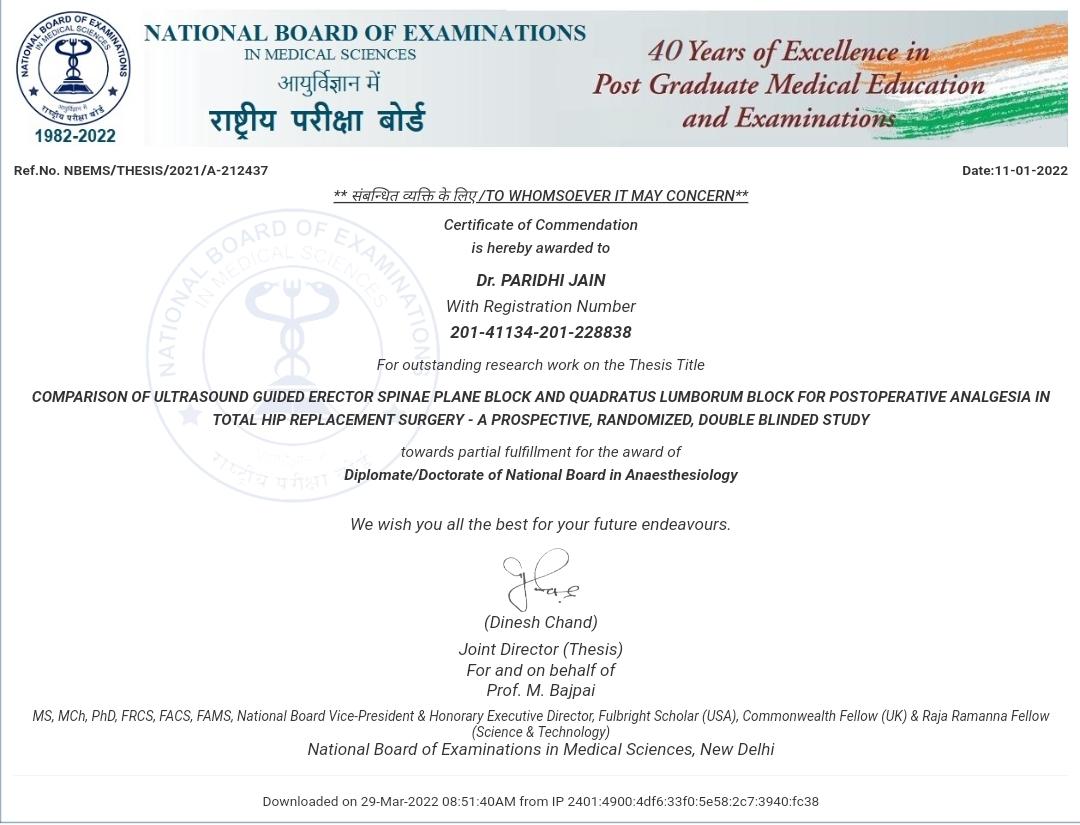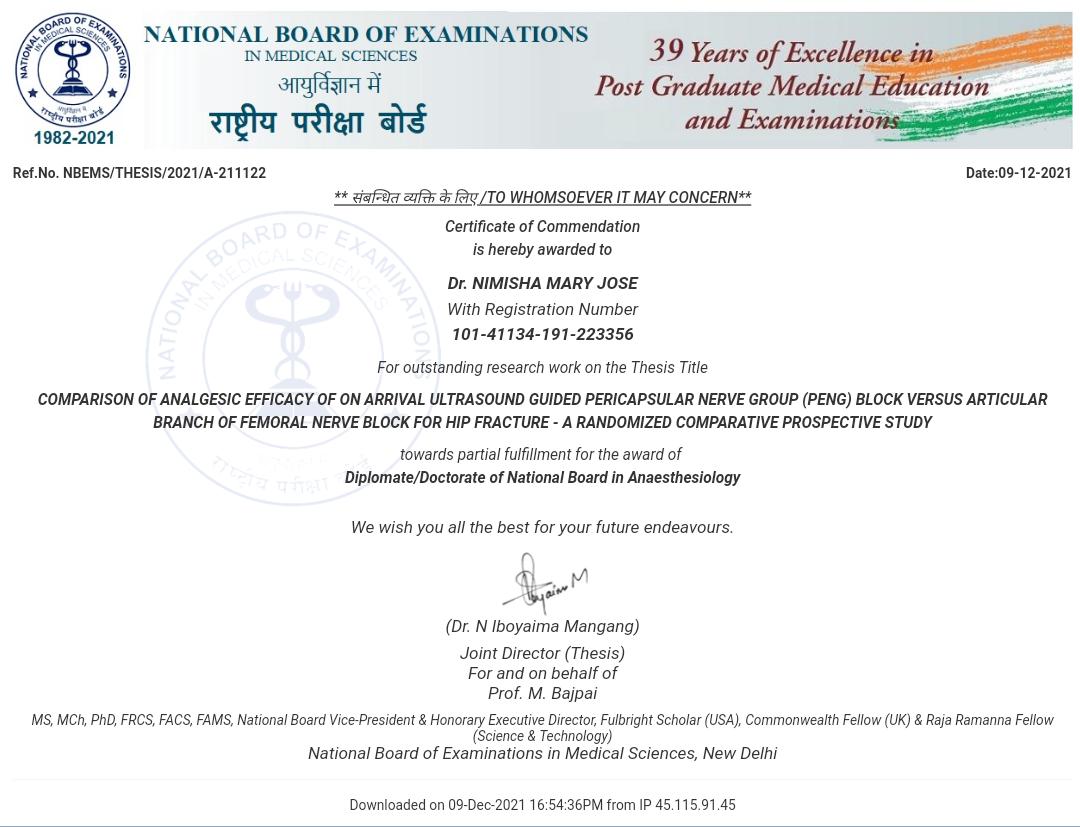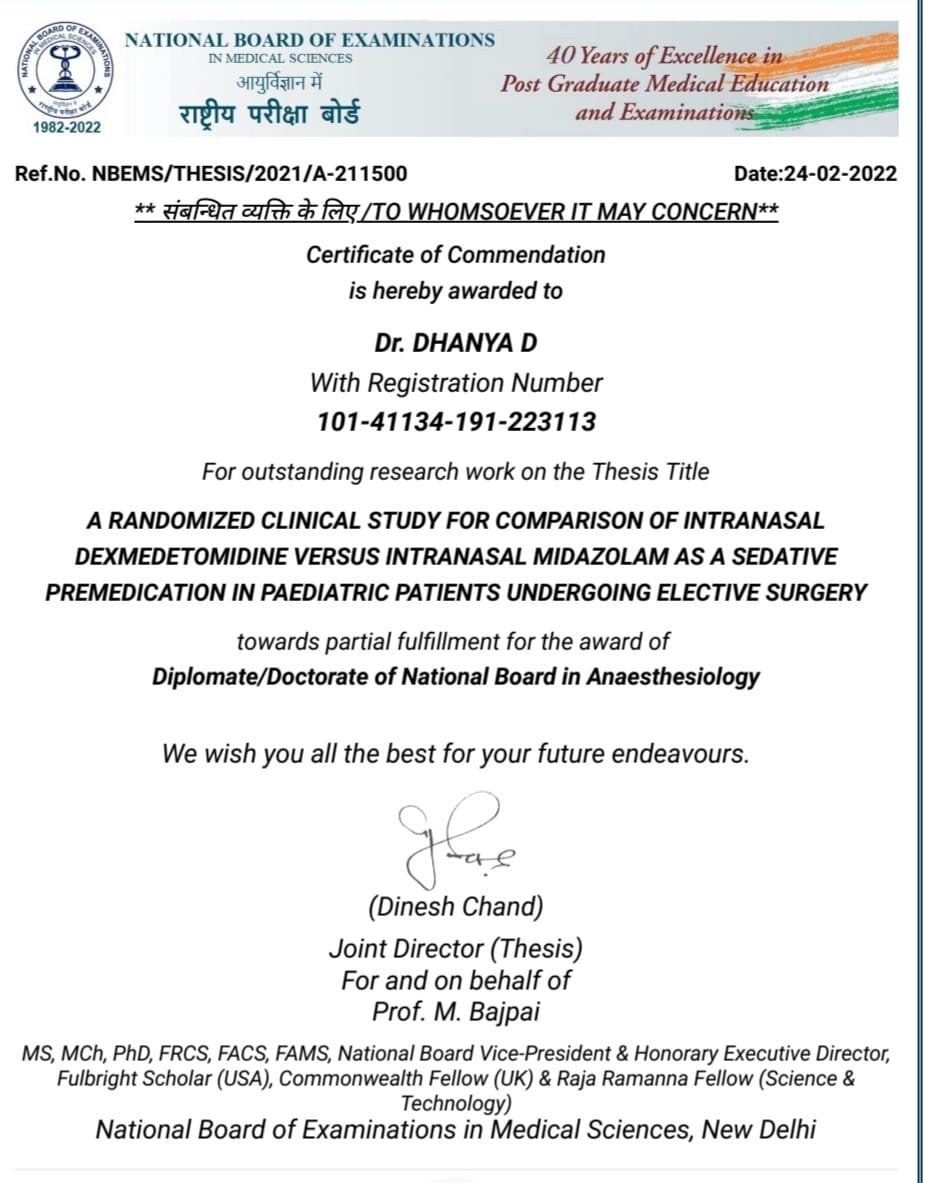Overview
There is an increase in demand for bone grafts at our hospital due to the enormous number of polytrauma, revision joint replacement surgeries and benign tumor patients who need complex reconstructive procedures. Tissue Bank is located inside the Ganga Hospital premises (Department of Orthopedics) and was launched in 2008 with the technical assistance from Tissue Bank at the Tata Memorial Hospital Mumbai. It is a self-funded, non-profit Tissue bank aimed at providing class leading service. The bank follows International Atomic Energy Agency (IAEA) standards followed by most of the Tissue banks in the world. We use Gamma irradiation as a method of sterilization.
Tissue bank is currently using well processed and gamma irradiated cortico cancellous bone allografts from tibial slices and femoral heads, long bones from amputated stumps in various clinical conditions like comminuted fractures and Non-unions with bone loss of both upper & lower limbs, revision joint replacement surgeries, tumour and spinal fusion surgeries. We also use tendon allografts for multi ligamentous conditions around the knee. All the grafts are screened routinely for HIV, HCV, HBV and syphilis to eliminate the risk of disease transmission. It is very safe to use the processed and gamma irradiated allografts from Tissue bank as risk of disease transmission is almost negligible. In our institution, we have utilized over 4000 bone allografts so far for various orthopedic procedures.
Dr S Rajasekaran heads the department of Tissue bank. Dr. P. Dhanasekara Raja has received the Degree of Diploma in Tissue banking from National University of Singapore. Dr. A Devendra is the Scientific Officer in charge of preparation, processing, storage and transportation of the allografts. He has received training in Tata Memorial Hospital Bone Bank in Mumbai and National University, Singapore. Also, visited the Tissue bank at Rizzoli institute, Bologna as an observer. Three technical assistants are involved in routine processing procedures and gamma irradiation of bone.
Tissue preservation
Freeze- Drying / Deep Freezing:
The preservation of tissue is done by either Freeze Drying or Deep Freezing. Freeze drying removes at least 95% of the total water. This enables the biological material to be stored for long periods of time at room temperature, without any fear of detrimental enzymatic activity. Biologically useful properties of the graft are also preserved.
Procurement and processing of bone:
All grafts are harvested from either live donors or cadavers. The femoral head and tibial slices are retrieved from joint replacement surgeries intra operatively under sterile conditions and long bones are harvested from amputated limbs and cadavers after fulfilling donor selection criteria and obtaining informed consent. In view of the spread of transmissible diseases , particularly with reference to the serodiagnostic window for HIV, all donated bones are processed. The bones are pasteurized at 600 C for 3 hours, vigorously washed, cleaned of all soft tissue and cut into the required shapes and sizes. They are subsequently washed free of blood and bone marrow using jet lavage and placed in 70% ethanol for 1 hour. The cleaned bones are stored at - 800C and finally freeze-dried to remove 95% of the moisture.
Steps of bone processing
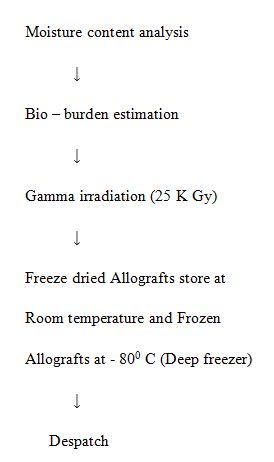
Design of Tissue bank
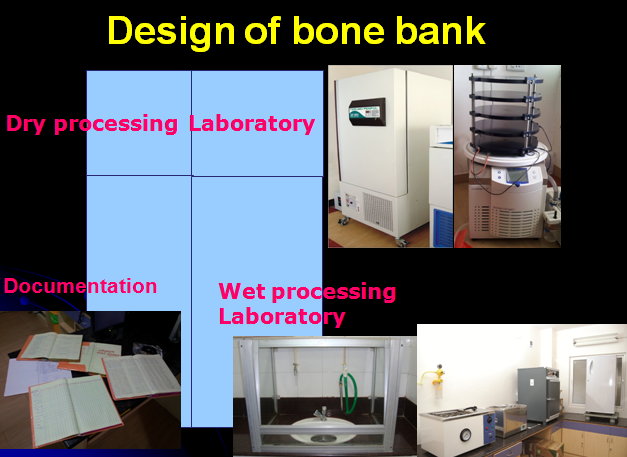
- Director
- Processing Manager
- Quality control Manager
- Technical assistant
- Deep Freezer (-80degrees)
- Band Saw
- Water Shaker bath
- Ultrasonic cleanser
Wet processing Laboratory
- Lyophiliser
- Laminar airflow cabinet
- ;Vacuum sealer
Dry Processing laboratory
Allografts Storage
Frozen Allografts are stored in Deep Freezing at - 80 degrees temperature.
No special requirements like refrigeration, humidity control, sterile environment, etc. are necessary for storage of packaged , Freeze dried, irradiated Allografts. Such grafts may be kept indefinitely provided the integrity of the packaging is maintained.
| Bones Name | 2016 | 2017 | 2018 | 2019 |
|---|---|---|---|---|
| Tibial slices | 237 | 283 | 309 | 291 |
| Femoral head | 69 | 152 | 123 | 105 |
| Cervical | 70 | 84 | 112 | 55 |
| Long bones | ||||
| Fibula | 32 | 39 | 37 | 26 |
| Tibia | 7 | 7 | 11 | 3 |
| Distal femur | 7 | 7 | 4 | 3 |
| Metatarsal | 9 | 11 | 15 | 9 |
| Ulna | 2 | 2 | 1 | 1 |
| Radius | 2 | - | 3 | - |
| Humerus | - | - | - | 1 |
Post Graduate Course
The Department of Anaesthesia and Perioperative Care has been accredited to the National Board of Examination, New Delhi since 2009. Currently,it has been accorded 6 Primary and 6 Secondary Postgraduate seats per Annum. The Primary candidates have to undergo the postgraduate course for 3 years and the Secondary Candidates for 2 years. The students undergo rigorous training including daily theory classes, clinical work inside the operation theatre, intensive care unit, high dependency unit, emergency care, trauma resuscitation, pre anaesthetic assessment, postoperative care and acute pain management.
They also undergo assessment skill tests every 6 months. They undergo a very structured training. They are induced into research as they are mandated to submit a thesis, a must before they appear for their final board exams.
The Department is very happy as we have been having consistently very good pass rates.
Several of our students have won Commendation Certificates from the National Board for their remarkable thesis work.
The sessions start from 1st January every year.
About National Board
The National Board of Examinations in Medical Sciences was established in 1975 with the prime objective of improving the quality of the Medical Education by elevating the level and establishing standards of post graduate examinations in modern medicine on an all India basis. There are more than 149 recognized Medical Colleges in the country. In addition to Postgraduate teaching institutions under MCI, there are 450 accredited institutions imparting training in various Broad and Super specialities for the award of postgraduate qualification in Broad and super specialities. The Board at present conducts postgraduate and postdoctoral examinations in 54 disciplines approved by the Board for the award of Diplomate of National Board.
The Nomenclature of the degree awarded by the National Board of Examinations in Medical Sciences is called the “Diplomate of National Board”.
The Diplomate qualifications awarded by the National Board of Examinations in Medical Sciences have been equated with the postgraduate and post doctorate degrees awarded by other Indian Universities by the Government of India, Ministry of Health and Family Welfare.
The holders of Board’s qualification awarded after an examination (DNB Final) are eligible to be considered for specialists post in any Hospital including training/teaching institution. Kindly refer to gazette notification dated 20th February 2009 issued in this regard by Government of India.



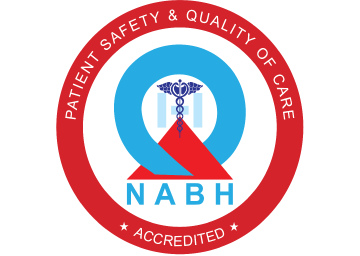
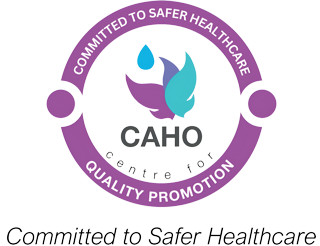
 Overview
Overview Design of Tissue bank
Design of Tissue bank Tissue preservation
Tissue preservation Allografts Storage
Allografts Storage